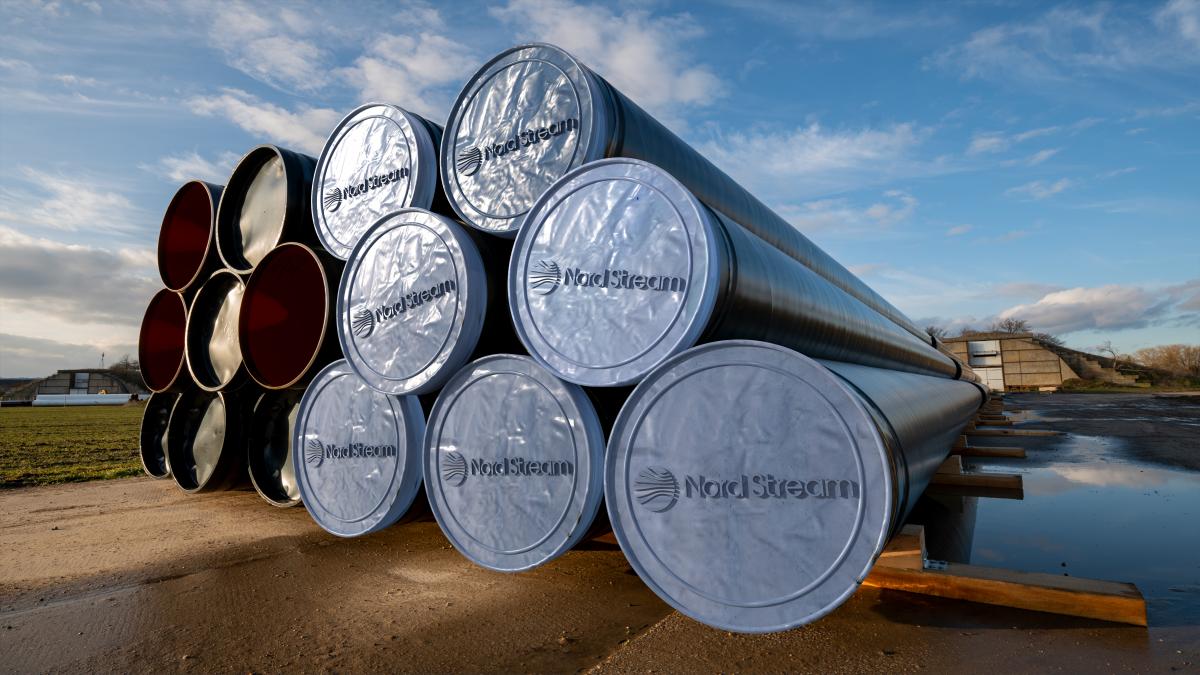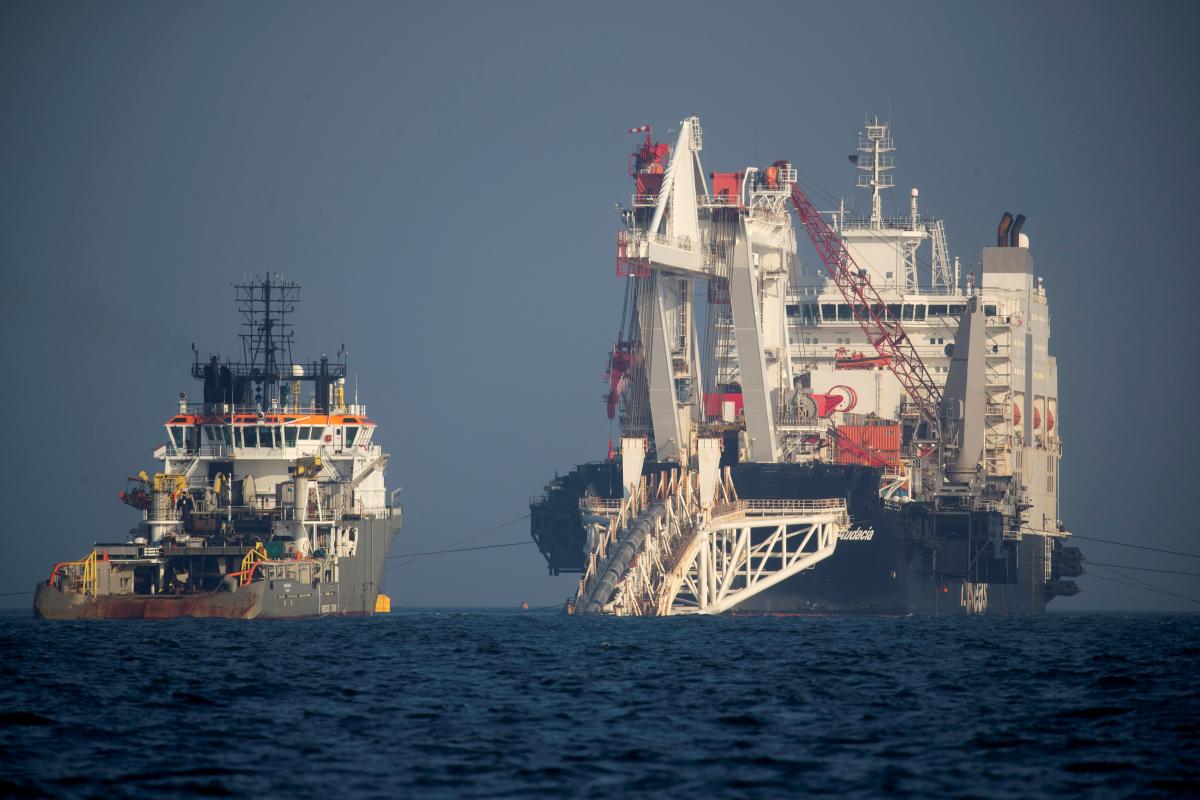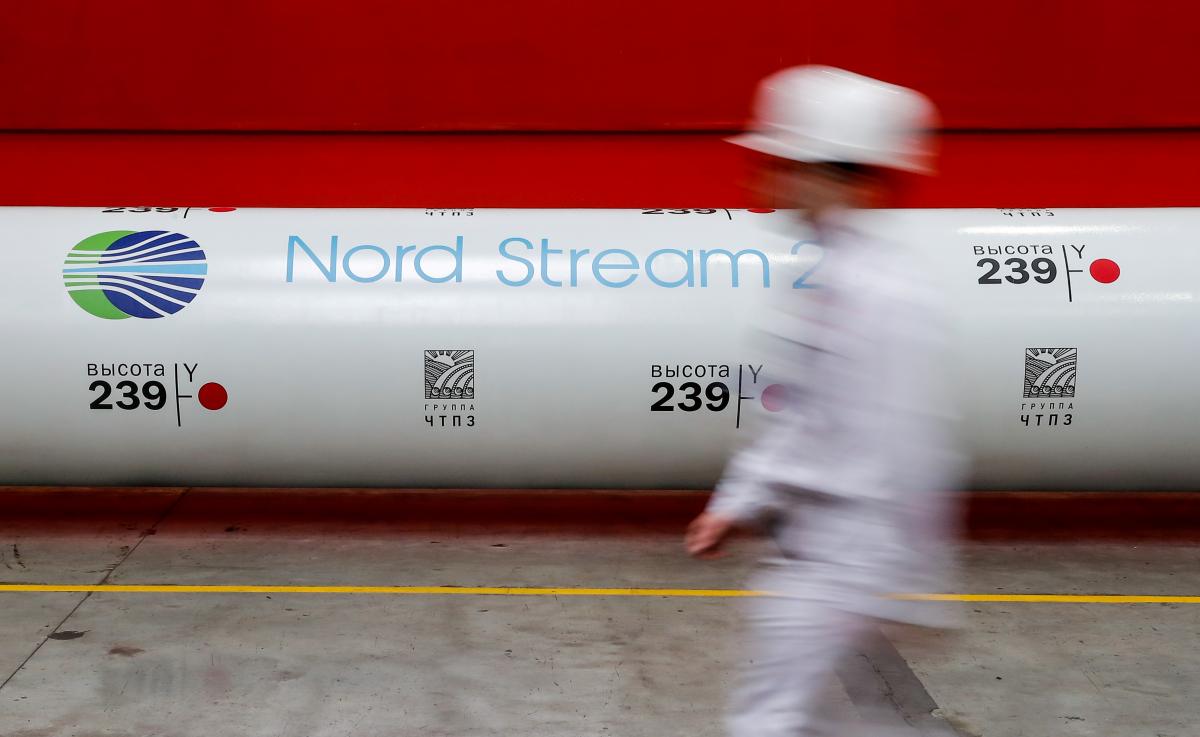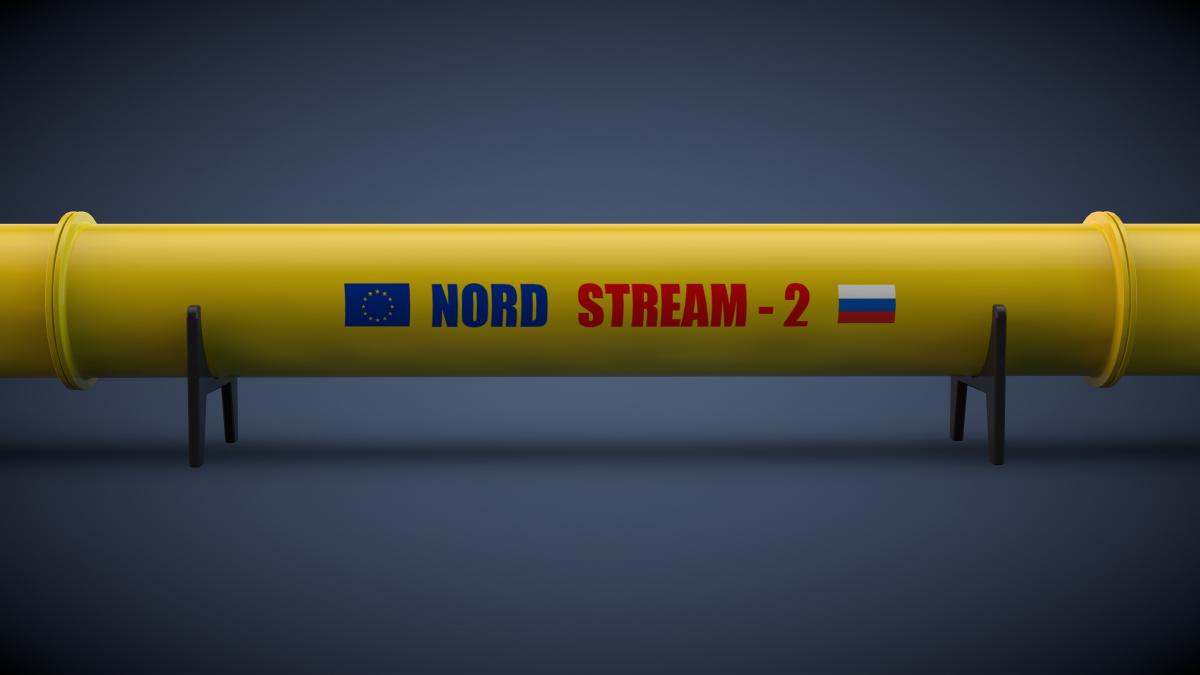
What Ukraine should do not to burn its fingers on compensation for Nord Stream 2
The situation around Nord Stream 2 is heating up. The closer the European tour of U.S. President Joe Biden, the closer the denouement. What will be the end of the saga of the Russian "construction of the century", conceived as an energy "stick" for Europe and a "funeral march" for Ukraine's gas transit status?
Putin's Nord Stream 2 project is now close to completion. Despite the fact that both the Americans and the Europeans previously seemed to have been hindering progress on this project, imposed sanctions, and made loud statements, now hopes that the Russian pipe will never be launched are melting. First of all, this is due to the illogical developments observed around the project.
The United States first declares it is dropping further sanctions targeting the gas pipeline, since this does not make sense – the construction is almost completed. Particularly interesting was the statement by Secretary of State Anthony Blinken, who said the U.S. move is in line with the national interests. As they say, it's just business, nothing personal…
Washington doesn't hide that it is now more important for them to establish cooperation with the EU, which was destroyed by Joe Biden's predecessor, Donald Trump. Germany occupies an important place in this friendly process, with their big businesses insisting on the economic feasibility of the Russian project. After all, billions have already been invested. Who will allow them to be "buried" at the bottom of the Baltic Sea? Also, the future for Berlin, if the pipe is launched, looks quite tempting – Germany will gain the status of Europe's main gas hub. But…

On the eve of Biden's first official visit to Europe, Blinken says the exact opposite – the decision to abandon new sanctions against Nord Stream 2 could be revised at any time. Blinken notes that the United States is now actively negotiating with Germany to reduce the negative impact from the pipe's launch, including on Ukraine.
"We want to make sure that Europeans take the necessary steps to protect, to mitigate, to deal with any of the adverse consequences of gas going through this pipeline," he said.
The United States is also working with Germany to make sure that "we are making Ukraine whole" for the loss of transit fees and to make sure "Russia cannot use gas as a coercive tool when it comes to Ukraine or anyone else."
Anyway, the situation will clear up a bit once NATO and G7 summits, and the heads of the European Union sit down with Biden. The U.S. president, among others, will meet the main figure in the "gas" story, German Chancellor Angela Merkel. Then, negotiations will take place with Russian President Vladimir Putin. We can only hope that the Ukraine issue will occupy a significant part in these talks.
As of today, our country has not yet been left behind. The Naftogaz delegation headed by CEO Yuriy Vitrenko flew to Washington, having previously strengthened its negotiating team. So far there is no news coming from them.
Foreign Minister Dmytro Kuleba also visited Germany. According to him, negotiations on Nord Stream 2 were "difficult." He assured his German counterpart Heiko Maas that Ukraine never had and dooesn't have any doubts about Germany's true intention to support his country.

"We understand that Germany is ready to provide guarantees, and we believe in these guarantees. But Russia will be a party to these guarantees, and here we have doubts, so we need a lot of substantive and detailed negotiations," Kuleba said.
But there is almost no time for "a lot". The gas contract with Gazprom expires early 2024.
Maas, in turn, assured that the German side had warned the Kremlin that the completion of the Nord Stream 2 construction is tied to the continued Russian gas transit through the territory of Ukraine. Germany "will continue to speak clearly about this to the Russian side at all levels." In other words, it'll be "conversations," nothing more.
Meanwhile, Ukraine has announced its plans to "rectify" the situation. The first of them is to set up an international consortium based on the country's GTS, which, according to the Ministry of Energy, will provide the required pressure on Russia to maintain gas transit via Ukraine.
An absolutely disastrous idea, actually, judging by historical practice… Throughout all thirty years of Ukraine's independence, the issue of creating an international consortium involving Ukraine's GTS has been raised. But until today, nothing of the kind has been created. And if the process used to be dragging in conventionally good times for Ukraine's gas pipe, today, when times are difficult, it will be impossible to resolve the issue.
As for "gas" compensation, this is a more realistic option. First, it is necessary at the EU level to raise the issue of non-compliance by the European Union with the Association Agreement with Ukraine, which provides for the priority use of the Ukrainian energy infrastructure by the parties.
In addition, documentary confirmation of the loud slogans by Western partners about supporting Ukraine is needed – a document, signatures, and a seal. And there must be no Russia in this formula – it has long spat on international agreements. Although now they assure they will not halt gas transit through Ukraine's territory, in accordance with the current contract. But then what?
By the way, let's dwell on the contract. It was signed late December 2019 between Gazprom and Naftogaz. Its validity period is until 2024, with the possibility of prolongation until 2034. The total volume of gas pumped under the deal should stand at 225 billion cubic meters within five years. At the same time, 65 billion cubic meters is the plan for 2020, 40 billion cubic meters – for each following year (2021-2024).
The question is, didn't the Ukrainian side that signed the contract understand that this was a frank demonstration by Russia of its true intentions – to completely abandon gas transit via Ukraine from 2024? If transit is reduced by a third, and Europe is only increasing consumption, is it not clear that the Kremlin doesn't bet on the Ukrainian pipe? Moscow has openly declared: "Nord Stream-2" by that time will have started working at full capacity. Apparently, the praises Naftogaz voiced to itself for the great victory in the Stockholm Arbitration prevented their management from thinking twice. Three billion dollars of Russian compensation have become decisive in this matter. While managers were sharing bonuses for the win, Russia was engaged in pushing forward their Nord Stream 2.
How will this whole story develop and will Ukraine lose its gas transit status? Will a document on compensation for losses be prepared and what will it be like? Very soon we will see some hints to possible answers to all these questions as we observe the direction the EU and the U.S. intend to move.
Nana Chornaya


